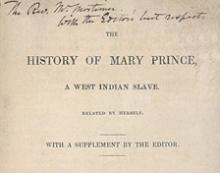Women
Life of Lycurgus
Part of Plutarch's Parallel Lives, Life of Lycurgus, is a collection of anecdotes on the Spartan law-giver, Lycurgus, that provides valuable information about the laws and customs of the Greek city-state.
Constitution of the Lacedaemonians
Very little extant information exists on the life of Spartan women, but one of the main sources is Xenophon, Constitution of the Lacedaemonians which catalogs Sparta's institutions and customs with the goal of explaining how Sparta came to be a powerful city-state despite its relatively small pop
On the Murder of Eratosthenes
In this speech, an Athenian man, Euphiletos, defends himself against a murder accusation, claiming that his killing of his wife’s lover was justifiable homicide.

Gifts of Speech: Women's Speeches from Around the World
This site offers an archive of speeches by “influential, contemporary women.” Almost all of the speeches in the collection come directly from the authors themselves or from the organizations representing them and have not been published elsewhere.Short Teaching Module: Gender and Race in Colonial Latin America
When I teach a survey of the colonial history of Latin America, I often focus on the era’s cultural history, and specifically on the issue of hegemony and resistance.

Short Teaching Module: Slavery, Labor, and Gender
In this case study, developed for a lower-division lecture class on “World History 1400-1870,” students explore gender though a primary source the personal account, “The History of Mary Prince, A West Indian Slave Related by Herself.” This first-person account was written by British abolitionists

Excerpt from The History of Mary Prince
“The History of Mary Prince, A West Indian Slave Related by Herself” is first-person account was written by British abolitionists and disseminated through the London Society for the Abolition of Slavery in 1831.

The Exotic White Man Print
The Exotic White Man is a late 19th-century Japanese color print from a private Dutch art collection. The print shows four figures—an older female and miniature-sized male in the foreground; a larger male behind them; and a second, younger female in the background.

Piglas-Diwa newsletter/booklet
The Piglas-Diwa newsletter/booklet is a creation of the feminist group of Filipino “comfort women" called Lila-Pilipina, who have banded together with feminist goals/messages for peace.